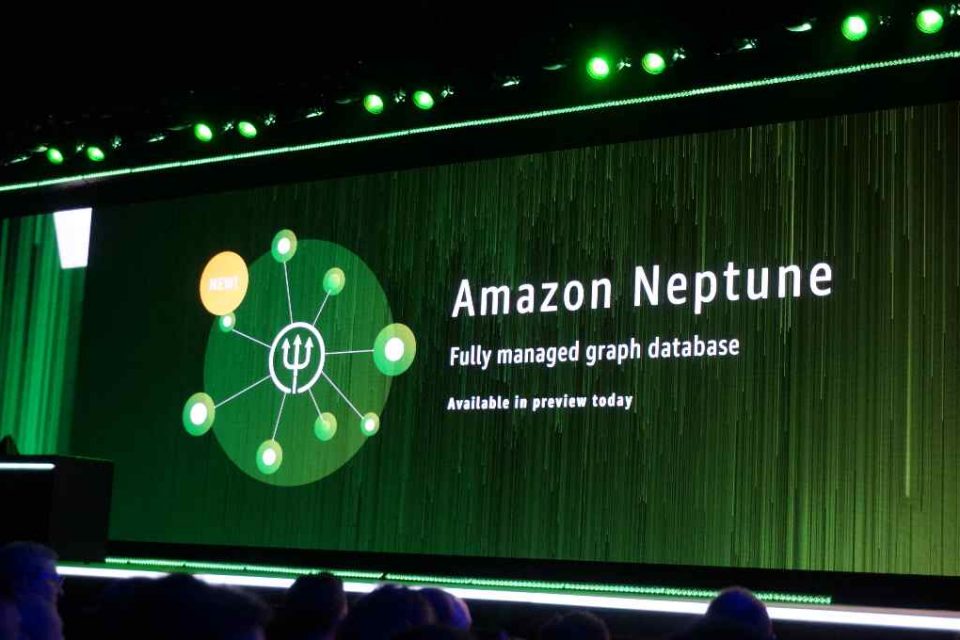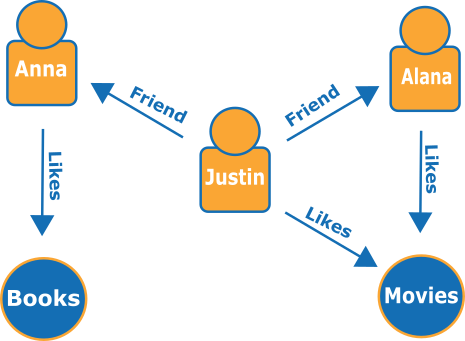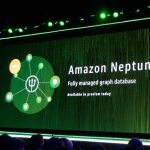Amazon Neptune, an Amazon Web Services (AWS)’ graph database, is now generally available

Back in November 2017, Amazon Web Services (AWS) introduced Amazon Neptune, a fast and reliable graph database service that makes it easy to gain insights from relationships among your highly connected datasets. The core of Amazon Neptune is a purpose-built, high-performance graph database engine optimized for storing billions of relationships and querying the graph with milliseconds of latency.
Delivered as a fully managed database, Neptune powers graph use cases such as recommendation engines, fraud detection, knowledge graphs, drug discovery, and network security. When it first debut, thousands of customers, including Samsung Electronics, Pearson, Intuit, Siemens, AstraZeneca, FINRA, LifeOmic, Blackfynn, and Amazon Alexa, participated in the preview, building new graph applications and battle-testing their production workloads. Now, Amazon is now making the database generally available to all its customers. Amazon announced today the general availability of Amazon Neptune.
Amazon Neptune efficiently stores and navigates highly connected data, allowing developers to create sophisticated, interactive graph applications that can query billions of relationships with millisecond latency. In the preview, customers used Neptune to build social networks, recommendation engines, fraud detection, knowledge graphs, drug discovery applications, and more. With Amazon Neptune there are no upfront costs, licenses, or commitments required; customers pay only for the Neptune resources they use.
Below is an example of a social network graph provided in Amazon Neptune.

This example models a group of friends and their hobbies as a graph. A simple traversal of this graph can tell you what Justin’s friends like. Source: Amazon Web Services (AWS) documentation
For many years, the relational database was the only option available to application developers. While relational databases are great for applications that need referential integrity for highly structured data, today’s developers need a variety of databases to serve the needs of modern applications. Just as some modern applications need to store petabytes of unstructured data, access it with sub-millisecond latency, process millions of requests per second, and scale to support millions of users all around the world, others need to quickly understand and navigate billions of relationships between highly connected data. Applications (e.g. social applications, recommendation engines, and fraud detection) that try to navigate these relationships using SQL queries require join operations that quickly become complex, error prone, and slow to execute. Graph databases are becoming more attractive because they store the relationships between highly connected data as graphs, enabling applications to quickly query these relationships.
However, many of today’s open source or community edition graph databases can’t offer the performance, reliability or scalability of commercial databases, while commercial options are often expensive, or complex to set up and maintain. Now, with Amazon Neptune, developers can query connected datasets with the speed and simplicity of a graph database, while benefiting from the scalability, security, durability, and availability of an AWS managed graph database service. The Amazon Neptune query processing engine is optimized for both of the leading graph models, Property Graph and W3C’s RDF, and their associated query languages, Apache TinkerPop Gremlin and RDF/SPARQL, providing customers the flexibility to choose the right approach based on their specific graph use case. And, as a customer’s data increases, Neptune storage scales automatically, without downtime or performance degradation.
“The days of modern technology companies using relational databases for all of their workloads have come and gone,” said Raju Gulabani, Vice President, Databases, Analytics, and Machine Learning at Amazon Web Services, Inc. “As the world has become more connected, applications that navigate large, connected datasets are increasingly more critical for customers. We are delighted to give customers a high-performance graph database service that enables developers to query billions of relationships in milliseconds using standard APIs, making it easy to build and run applications that work with highly connected datasets.”
Amazon Neptune is highly available and durable, automatically replicating six copies of data across three Availability Zones and continuously backing up data to Amazon Simple Storage Service (Amazon S3). Amazon Neptune is designed to offer greater than 99.99 percent availability and automatically detects and recovers from most database failures in less than 30 seconds. Amazon Neptune also provides advanced security capabilities, including network security through Amazon Virtual Private Cloud (VPC), and encryption at rest using AWS Key Management Service (KMS).
Pearson, the world’s learning company, helps more than 75 million people each year embrace their passion and ambition for learning new skills. “Our goal is to significantly reduce complexity in several of our key systems and to standardize how our organization approaches heavily connected, graph data,” said Josh Walton, Senior Solutions Architect of Pearson. “We’ve long wanted to use a graph database, but until we evaluated Neptune, nothing fit our needs due to performance or cost. We tried Neptune during the preview and the promise it shows is exciting. Our performance test results have been exceptional and the pricing is right. We expect to be able to simplify our existing architecture and maintain current SLAs while also gaining the ability to scale beyond our current capacity, and speed up development time with all the packaged, fully managed goodies that come along with AWS managed services.”
Blackfynn is a life sciences software startup formed to change how Epilepsy, Alzheimer’s disease, Parkinson’s disease, ALS, and other neurological diseases are treated. The multidisciplinary team has deep roots in medicine, clinical development, neuroscience, engineering, data science and machine learning. “We look forward to using Amazon Neptune as an integral part of our data platform,” said Chris Baglieri, SVP of Engineering at Blackfynn. “Neptune will allow us to connect the dots between genomics, pathology, neurochemistry, device and patient clinical data, efficiently and at scale, helping us drive breakthrough discoveries.”
Intuit is powering prosperity for millions of small businesses and self-employed customers around the world. “We are exploring Amazon Neptune for heavy lifting of our Graph infrastructure management, freeing our engineering team to focus on optimizing the knowledge graph for customer-centric business problems,” said Sandeep Uttamchandani, Chief Data Architect, Intuit Small Business Group and Self-Employed Group. “Neptune is promising as a secure and highly available Graph database available out of the box!”
FINRA regulates a critical part of the securities industry – brokerage firms doing business with the public in the United States. FINRA takes in up to 100 billion market events per day that are tracked, aggregated, and analyzed for the purpose of protecting investors. “FINRA is in the process of migrating most of our databases to AWS,” said Saman Michael Far, Senior Vice President, FINRA. “We have evaluated Amazon Neptune, and we look forward to beginning to use it for our graph workloads.”
LifeOmic leverages the cloud, machine learning and mobile devices to enable precision medicine for healthcare providers, researchers, health IT companies and patients. LifeOmic’s JupiterOne is a DevSecOps solution built in the cloud, for the cloud to automate and simplify security and compliance such as HIPAA and HITRUST. “Amazon Neptune has accelerated the development of our JupiterOne DevSecOps software while reducing our operational costs, enabling us to bring enterprise grade security solutions to companies of all sizes,” said Erkang Zheng, Chief Information Security Officer at LifeOmic. “Security operations, analytics and compliance fundamentally boil down to the ability to ask the right questions and get the right answers quickly, but the speed of DevOps and the ephemeral nature of cloud make this difficult. With Neptune, we can harness the power of graph databases without infrastructure maintenance overhead. This enables us to focus on helping organizations build solutions that simplify security and fast track compliance and certifications such as HIPAA, HITRUST and NIST.”
“Amazon Neptune is a key part of the toolkit we use to continually expand Alexa’s knowledge graph for our tens of millions of Alexa customers—it’s just Day 1 and we’re excited to continue our work with the AWS team to deliver even better experiences for our customers,” said David Hardcastle, Director of Amazon Alexa, Amazon.
Amazon Neptune is available in the US East (N. Virginia), US East (Ohio), US West (Oregon), and EU (Ireland) regions, and will expand to additional Regions in the coming year.

